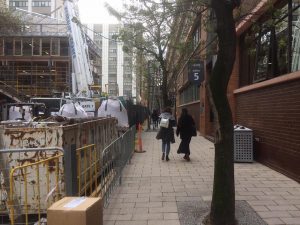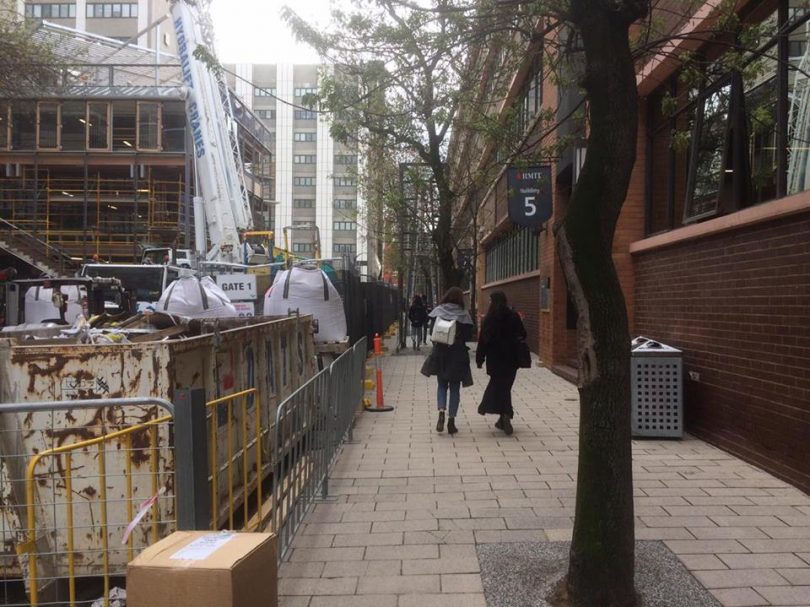In light of the findings of a Human Rights Commission survey into instances of sexual assault and harassment on campus, RMIT’s students say there needs to be a change in university culture.
The survey was the largest of its kind ever completed in Australia. 31,000 students and teachers from 39 universities were asked about their experiences with sexual harassment and assault in university or travelling to and from university.
More than half of university students say they had experienced sexual harassment in some form in 2016. These findings have shocked university leaders and the wider community and prompted swift responses from university leaders and governments.
All universities, including RMIT – the largest university in Victoria – were universal in their expression of shock and condemnation of the level of incidence shown in the survey. However, RMIT university students weren’t as surprised by the results.
“To be honest, I wasn’t (surprised),” said Kelsey, 21, in her final year of an undergraduate degree. “If anything, I was surprised they weren’t even higher, actually.”
“Personally, I always feel safe at RMIT because there are so many people around, but it’s easy to see how you wouldn’t. If I had a class at night, I don’t think I would feel very safe.”
RMIT’s students reporting a slightly lower than average incidence of sexual harassment. 46% of RMIT students reported some form of sexual harassment in 2016; with over one in four students surveyed saying the harassment happened on RMIT campus. 2.1% of RMIT students reported being sexually assaulted on campus. These results were similar to the national average across all of the universities surveyed.
The university expressed its regret at the number of instances of sexual harassment and assault.
“Like everyone, we are deeply saddened by what the survey has shown us,” said Belinda Tynan, Deputy-vice chancellor for Education at RMIT. “A single incident of sexual harassment or assault is too many.”
“The results are confronting – we can and must do more. The main challenge is to change the culture on campus, and society more broadly.”

46% of RMIT students said they had experienced some form of sexual harassment in 2016. [Photo: Finn Devlin]
Students agreed that a large shift in culture was needed to combat attitudes surrounding sexual violence, particularly against women.
“These findings really indicate that awareness and prevention (of sexual harassment and assault) have not been prioritised enough by the university,” said Jarrod, a 20-year-old undergraduate. “It should serve as a wake-up call that student safety is of the utmost importance.”
Penelope, a student who’s been studying at RMIT for the past 18 months, believes that professional help is the best way to change attitudes on campus, “I think the way to approach it would be to provide more visible mental health services so that people can talk more about sensitive issues, reducing the taboo of it. Exposing the issue will help people realise that it’s not ok at all.”
“At the moment, given what I have heard, I would hope if I reported an incident to the university that it would be treated with more severity than some cases are at the moment.”
Tynan explained that encouraging more students to come forward was key in changing the campus culture to these incidences. “We need to make sure students know their rights and how to use them.”
“RMIT adopts a trauma-informed approach where the wishes of the victim are adhered to as closely as possible, provided the risks to the broader community can be reasonably managed. We are also encouraging all students to undertake consent training.”
“RMIT is also working to improve student community culture by coordinating with student groups and RMIT University Student Union. Our policies are reviewed regularly and we’ll make changes if they are useful.”
“We need to shift the culture to one of respect.”
While the findings of the Human Rights Commission survey – the largest of its kind ever undertaken in Australia – where confronting, Kelsey expressed hope that the survey would signal a generational shift in attitudes to sexual harassment and assault.
“To be frank, sexual harassment and assault isn’t an issue that’s exclusive to our generation. Ours is the first to speak candidly about the issue, which is the start of the fight.”






